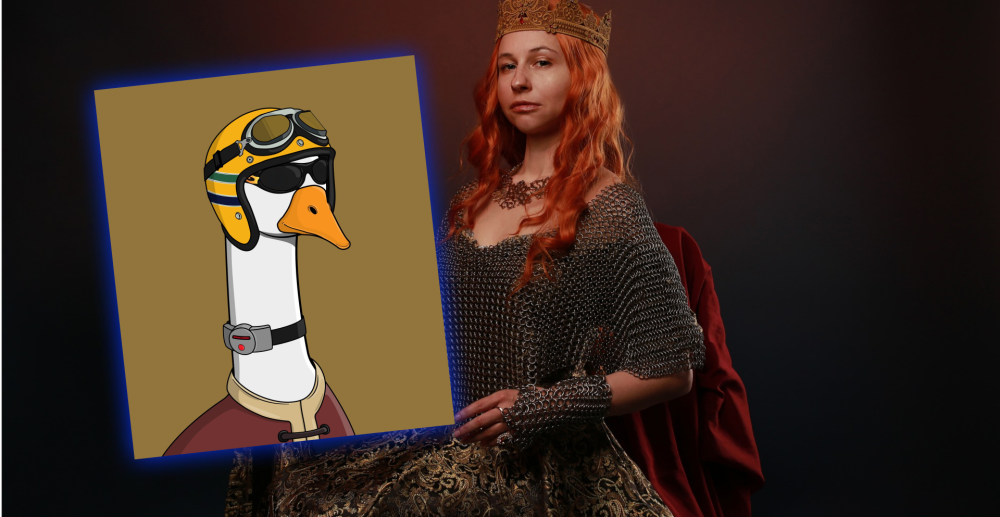Milo S-P
What removing creator royalties will mean for NFT space.
Marketplace, seller and creator, in that order
What removing creator royalties will mean for NFT space.

Whether it’s interest rates throughout the last decade or NFT Marketplace fees in 2022, the race to zero is on.
Marketplace after marketplace have completely slashed mandatory creator royalties leaving NFT creators with added income ambiguity. Typically royalties range between 5-10% of the secondary sale price and are paid by the seller, but increasingly this is becoming something of the past.
Solana’s Magic Eden and X2Y2 have optional creator royalties resulting in an increase in NFT trading on secondary markets. It should be noted that on X2YX only 18% of sellers opted-in to creator royalties compared to a month ago when this was 75%, one can expect this figure to drop considerably more as why would you pay for something optional?
Popular YC backed NFT Marketplace OpenSea have released their position on the matter with mixed response. Since Magic Eden and other marketplaces’ have made royalties optional, OpenSea’s market share and trading volume was falling rapidly.
In a recent Twitter thread the NFT juggernaut stated how they will offer creators a blacklisting service to forbid their NFTs being traded on zero or optional royalty NFT marketplaces.
This monopoly-move by OpenSea just cements their power in the NFT space and crushes opposition whilst appearing to be helping their creators. Yet, upon closer inspection if OpenSea were to remove creator royalties, what does this mean for the future of NFTs and the ecosystem! Death blow arguably.
Why do people not want to pay a royalty?
The large proportion of NFT buyers are not buying digital art to be part of a social contract or because they like the art. People buy NFTs and cryptocurrency because they want to make money; so of course they will use every opportunity to increase their bottom line when it comes to trading NFTs. Understandably.
This raises various questions: do NFT creators deserve royalties? What is the percentage of NFT projects that actually offer utility even after the mint ? Who is consistently adding value to their holders?
Now admittedly there are different types of NFTs, there’s digital art NFTs, gaming NFTs even article NFTs (seriously good) and these can all be traded on the same NFT marketplace. Arguably gaming NFTs do deserve a royalty as their continued utility is offered to all of it’s owners and it facilitates an improved gameplay experiences.
But what exactly do digital art NFTs offer? Who decides if a royalty is deserved or not? The seller? The creator? The marketplace?
However a lot of collectors are not reluctant to pay royalties with a few degens admitting it’s the cost of doing business and recognise the income motivates creators to keep going. It should be noted that Galaxy Digital released a report revealing that $1.8bn in royalties had been paid out to creators in the history of the NFT space, with Yuga Labs’ Bored Ape Yacht Club earning $143m, one should remember that they only earned a few million off the initial mint…
As a result, perhaps we have become accustomed to paying royalties and maybe the current slashing of royalties is solely a temporary solution to encourage NFT sales during a crypto winter and recession. But will previously loyal creators forgive their NFT marketplaces’ who have shafted them ? Doubt it!
What sort of processes can creators do to protect their income?
Slashing mandatory royalties affects creators and their ability to be incentivised to produce more art and offer tradable items on marketplaces. NFT marketplaces have no issue making sure their fee is mandatory but the creator’s is optional, what does this say to existing or aspiring creators? Admittedly LooksRare gives 25% of their 2% platform fee to NFT creators which is a start but that’s a monumental pay cut !
Could we see a revolt from creators to only offer utility and increased benefits to NFT owners who paid out the correct royalty? This could be a crucial step to enforce a “social contract” between creators and owners resulting in a divide between have-paid and have–not-paid.
How can creators make sure they are getting their royalties ?
Alternatively there are in fact ways for creators to guarantee they receive a royalty and get the income they deserve but it comes with a catch.
Venture backed sustainable NFT marketplace Dartroom uses something called a “smart NFT”, which is a stateful smart contract on Algorand that removes any ambiguity of a creator payout as the royalty is coded into the NFT itself. An innovative product that landed Dartroom an Algorand Foundation grant and later a seed round of $600k. However various limitations means the NFT can’t be viewed in your wallet and can only be transacted on their platform, which has resulted in the product being pulled from the Dartroom Marketplace at the end of the year. So be quick
Removing royalties is regressive and damages web3
As the founder of Tokenblogs and shortly a rental NFT marketplace, I feel it axiomatic that royalties are included in all NFT sale transactions. This whole spiel about NFTs “redefining ownership and rights” is completely hyperbolic nonsense if you don’t compensate the creator! If you just want to give a slice to the auction house and the current owner then how is that any different to IRL set up?
Once again, web3 is sounding a lot more regressive by the day instead of this revolutionary egalitarian metaverse we keep hearing about…
Tokenblogs will never cut royalties, our platform fees will be gone before our writers see a dent in their secondary sales income.
*Note from Shufl
Here at Shufl we are committed to creating a transparent NFT marketplace which empowers creators and provides a transparent prciging structure for buyers/sellers. This is why, we enforce a flat rate of 5% royalties on ALL NFTs sold through the marketplace. Creators are the live blood of the NFT economy and marketplaces need to do what we can to ensure they receive the compensation they deserve.
This article is a digtial asset on the Algorand Blockchain and was purchased through the Tokenblogs.app platform.
*All articles published on the Shufl.app website are the opinions of the author. As opinion pieces they may not reflect the opinions of Shufl Inc. These articles are created purely for entertainment and informational purposes only and do not constitute investment advice. Cryptocurrency and NFTs are highly volatile assets and you should always do your own research before making any investment.
